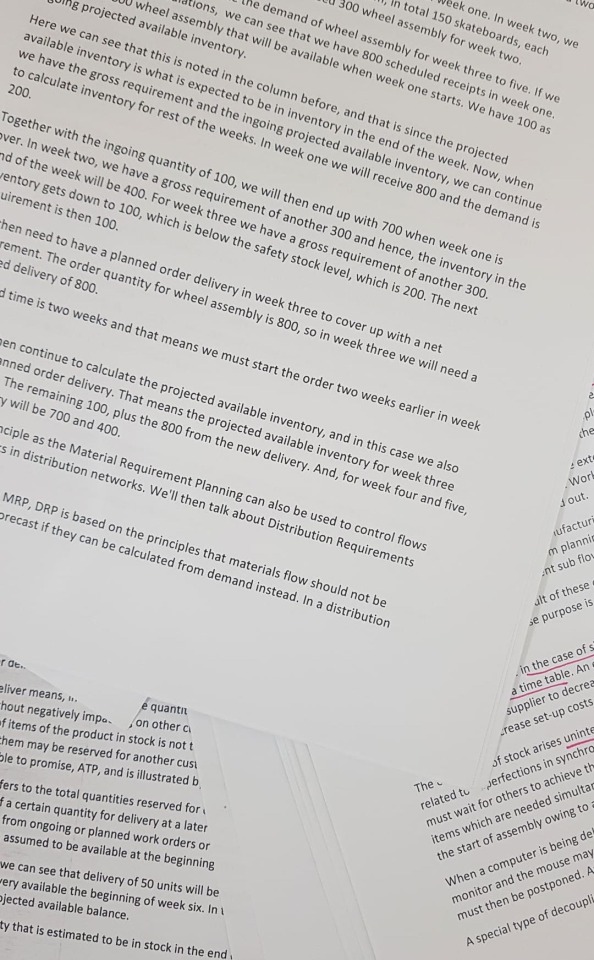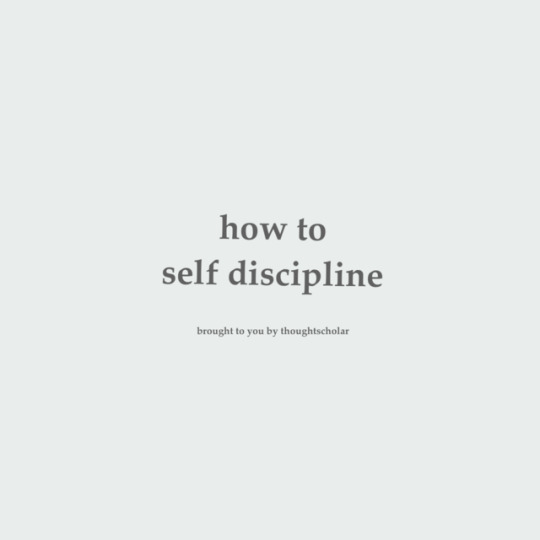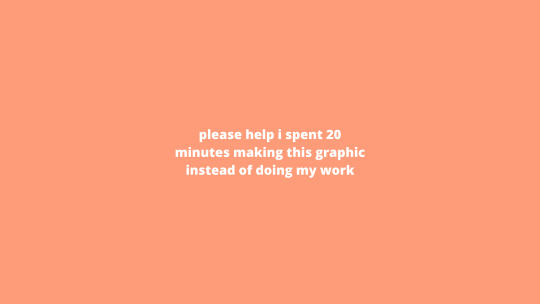Highschool class of 2022 • commerce • my notes aren’t cute • learning Japanese and Hindi
Don't wanna be here? Send us removal request.
Text
WHY HAD NO ONE TOLD ME ABOUT THE TABULAR METHOD OF SOLVING INTEGRATION BY PARTS
like. this is a game changer. say you are taking the integral of x^3(sinx)dx: the tabular method involves creating a chart to easily calculate the solution with out it being incredibly painful-

so the indefinite integral would equal -x^3cosx+3x^2sinx+6xcosx-6sinx+C
Here's a video explaining it in detail
82 notes
·
View notes
Text
Study in a brain-friendly way: Tips to enhance growth mindsets
Read about growth mindsets or watch an interview or film about what happens in your brain when you learn.
Remember that the aim of learning is to learn. It doesn’t always have to be fun. Being happy or enjoying what you are learning is certainly an advantage, but it’s not a dealbreaker. There is nothing wrong with a little discomfort while you learn. Don’t be put off if you don’t always enjoy learning; it’s really not important.
Note: making a mistake is a valuable lesson in itself. Most people don’t like making mistakes, but seen as a valuable lesson, mistakes take on a different meaning. You are, after all, learning. And if learning is important to you, mistakes become valuable.
Try to think of something that you are now better at than you were in the past. What was it that you found difficult, but which has now become easier? How did you achieve this? Thinking about this will put you into a growth mindset.
When you hear yourself saying ‘I can’t do this!’…….add ‘yet’
79 notes
·
View notes
Text
A quick guide to finals!
Over the past few days I’ve recieved loads of messages regarding finals and how to study for them. I thought it might be easiest for me (and you!) to put together a post with links to blog posts and answered questions. These are just some simple tips that will hopefully get you through the more stressful times of your education!
Time management/productivity
productivity and time management apps
10 small ways to improve your productivity
how to avoid distractions
extensions and programs to block websites
how to stay awake
how to write faster
productivity tips
dealing with terrible time management and no motivation
tips on time management
chrome new tab extensions
Organisation/planning
how to start a bullet journal
my note-taking method
organisation and note-taking tips
how to stay focused in class or lectures
how to create a study schedule
how to make a colour code
catching up on missed classes
weekly study schedule printable
2017 monthly calendar printables
Studying
how to study (my method)
step-by-step guide to writing a five paragraph essay
how to take notes from a textbook
how to take effective in class or lecture notes
how to set-up and use microsoft onenote
studying and note-taking methods
how I prepare to study
how I format my notes
mindmapping chrome extensions
how to memorise information
my colour code
how to revise from written notes
a few tips on identifying where you’re losing marks
how to make a mind map
how to write an essay in a short amount of time
memorising quotes
how to summarise information
how to annotate books
how I memorise essays
tips for essay writing
how I reduce narrative/description in essays
how to use flashcards
Motivation
how to gain back motivation
types of procrastination and dealing with them
motivational monday printables
how to stop avoiding studying
what to do when you feel exhausted before studying
how I stay focused and motivated
Self-care
a list of school related movies and tv shows
dealing with anxiety
how to study when sick
dealing with self-doubt
a couple of things to do as a reward
dealing with stress
my favourite tv shows!!!
how to improve your sleep schedule
Misc
a list of apps for students
my favourite pens and highlighters
how to start a studyblr
how to set up a studygram
how to improve your handwriting
my arc notebook system
I hope this helps! If you’ve got any of your own useful tips for finals, please send me a message! Best of luck with your exams! x
Other posts | Printables | Instagram | Youtube | Pinterest
11K notes
·
View notes
Photo


21.05.2021 (34/100 Days of Productivity)
Featuring business notes plus one cup of tea.
236 notes
·
View notes
Text
idk who needs to hear this but when your english teacher asks you to explain why an author chose to use a specific metaphor or literary device, it’s not because you won’t be able to function in real-world society without the essential knowledge of gatsby’s green light or whatever, it’s because that process develops your abilities to parse a text for meaning and fill in gaps in information by yourself, and if you’re wondering what happens when you DON’T develop an adult level of reading comprehension, look no further than the dizzying array of examples right here on tumblr dot com
210K notes
·
View notes
Text
friendly reminder that you didn’t waste your year. any moments of happiness or comfort, any small accomplishments, they all matter. this has been a really hard year, and simply surviving is something to be proud of.
131K notes
·
View notes
Text
26 Reminders for Going to School Like a Badass
1. Your attitude dictates your experience, so start finding things to get psyched about.
2. Stock up on healthy snacks in your house!!! You’ll be glad you did when the study-munchies roll around (and they always do).
3. Invest in a good planner. Especially if you take part in multiple extra-curriculars, I can’t stress how helpful it is having a place to check back on deadlines and big events.
4. Write down all your teachers’ names and emails as soon as you get them, so you’re not searching for them when you’re absent.
5. No one is having as much fun as their snapchat story makes it seem.
6. Don’t believe what your peers tell you about tests they take before you, study how much YOU need to.
7. Be nice to your math teacher. Partial credit on math problems might save your grade.
8. Don’t throw out syllabuses/first day handouts!!!! Theres a good chance they have information on the late policy and a gazillion other helpful things.
9. In fact, try to hold on to as many papers as you can for when finals inevitably attack.
10. No one knows you wore those jeans yesterday.
11. Be conscious of how you smell. Don’t be B.O. kid, but also try not to suffocate your lab partner with the scent of artificial fruit/flowers.
12. That cookie in the cafeteria is probably not worth 95 cents. Pack snacks from home to resist overpriced school treats.
13. If you’re carrying around a travel mug of coffee, people will usually leave you alone.
14. Don’t spend more time planning your study schedule than actually studying. Just get your books out and do it.
15. Never underestimate the amount of motivation you can get from watching Legally Blonde (movie or musical).
16. Try to attend at least one school sporting event per season, even if thats not really your scene. Some teachers even offer extra credit for going to big games!
17. Don’t be that kid that asks the teacher when you’re getting your tests back. They have like a gazillion to grade. You’ll get them when they’re done.
18. Have a pump-up playlist for the ride to school and the walk to your first class. Nothing feels more badass than walking through crowded hallways while listening to Halsey’s “New Americana”.
19. Set up a back-up study zone for when you need a change of pace.
20. Don’t put off creative projects because you think they’ll be less time consuming. There’s nothing worse than glitter gluing a scale model of the U.S. Senate at 3 AM because you thought it would be quick and easy.
21. That extra 10 minutes of sleep is not worth the risk of oversleeping completely. Get up, splash your face with some cold water, and get this show on the road.
22. Find a school inspiration, whether it be a really hardworking friend or a studyblr you follow. Check their progress whenever you need motivation.
23. If someone only ever talks to you when they need to copy the homework, they’re using. Don’t indulge them.
24. Doing your own work is so SO important. Plagiarism can destroy careers.
25. Creative outlets can be so refreshing, like a diary, a private tumblr, a sketchbook, whatever floats your boat.
26. When all else fails, remember how lucky you are to be getting an education. School isn’t a punishment, its an opportunity for you to create a kick-ass foundation for the rest of your life.
49K notes
·
View notes
Photo


29.09.20 / i finally got to rearranging the photos and artwork on my wall. i’m the type of person who thrives when my surroundings are refreshed and organized so i’m feeling extra productive now that i have a “new” desk situation. i’m editing a first draft at the moment while listening to older albums i haven’t listened to in a while. i hope you’re having a lovely tuesday ♡
2K notes
·
View notes
Text
To say, “This is my uncle,” in Chinese, you have no choice but to encode more information about said uncle. The language requires that you denote the side the uncle is on, whether he’s related by marriage or birth and, if it’s your father’s brother, whether he’s older or younger.
“All of this information is obligatory. Chinese doesn’t let me ignore it,” says Chen. “In fact, if I want to speak correctly, Chinese forces me to constantly think about it.”
This got Chen wondering: Is there a connection between language and how we think and behave? In particular, Chen wanted to know: does our language affect our economic decisions?
Chen designed a study — which he describes in detail in this blog post — to look at how language might affect individual’s ability to save for the future. According to his results, it does — big time.
While “futured languages,” like English, distinguish between the past, present and future, “futureless languages,” like Chinese, use the same phrasing to describe the events of yesterday, today and tomorrow. Using vast inventories of data and meticulous analysis, Chen found that huge economic differences accompany this linguistic discrepancy. Futureless language speakers are 30 percent more likely to report having saved in any given year than futured language speakers. (This amounts to 25 percent more savings by retirement, if income is held constant.) Chen’s explanation: When we speak about the future as more distinct from the present, it feels more distant — and we’re less motivated to save money now in favor of monetary comfort years down the line.
But that’s only the beginning. There’s a wide field of research on the link between language and both psychology and behavior. Here, a few fascinating examples:
Navigation and Pormpuraawans In Pormpuraaw, an Australian Aboriginal community, you wouldn’t refer to an object as on your “left” or “right,” but rather as “northeast” or “southwest,” writes Stanford psychology professor Lera Boroditsky (and an expert in linguistic-cultural connections) in the Wall Street Journal. About a third of the world’s languages discuss space in these kinds of absolute terms rather than the relative ones we use in English, according to Boroditsky. “As a result of this constant linguistic training,” she writes, “speakers of such languages are remarkably good at staying oriented and keeping track of where they are, even in unfamiliar landscapes.” On a research trip to Australia, Boroditsky and her colleague found that Pormpuraawans, who speak Kuuk Thaayorre, not only knew instinctively in which direction they were facing, but also always arranged pictures in a temporal progression from east to west.
Blame and English Speakers In the same article, Boroditsky notes that in English, we’ll often say that someone broke a vase even if it was an accident, but Spanish and Japanese speakers tend to say that the vase broke itself. Boroditsky describes a study by her student Caitlin Fausey in which English speakers were much more likely to remember who accidentally popped balloons, broke eggs, or spilled drinks in a video than Spanish or Japanese speakers. (Guilt alert!) Not only that, but there’s a correlation between a focus on agents in English and our criminal-justice bent toward punishing transgressors rather than restituting victims, Boroditsky argues.
Color among Zuñi and Russian Speakers Our ability to distinguish between colors follows the terms in which we describe them, as Chen notes in the academic paper in which he presents his research (forthcoming in the American Economic Review; PDF here). A 1954 study found that Zuñi speakers, who don’t differentiate between orange and yellow, have trouble telling them apart. Russian speakers, on the other hand, have separate words for light blue (goluboy) and dark blue (siniy). According to a 2007 study, they’re better than English speakers at picking out blues close to the goluboy/siniy threshold.
Gender in Finnish and Hebrew In Hebrew, gender markers are all over the place, whereas Finnish doesn’t mark gender at all, Boroditsky writes in Scientific American (PDF). A study done in the 1980s found that, yup, thought follows suit: kids who spoke Hebrew knew their own genders a year earlier than those who grew up speaking Finnish. (Speakers of English, in which gender referents fall in the middle, were in between on that timeline, too.)
81K notes
·
View notes
Photo

● Seize time opportunities. If I have 15 minutes until your next class, I sit down and do homework in the hallway. If I have a long commute, I’ll do flashcards. This works because you most likely won’t have anything else to do anyways, so it’s easier to get your work done.
● Start something. When I get a lab report assignment, the first thing I do is pull up the directions and at least start the cover page and pull up some research links. It takes 5 minutes but it gets the ball rolling and makes it more likely that you’ll finish what you started.
● Auto-mode. When I procrastinating, it’s usually because I’m too busy thinking about what I’m going to do. Instead, I like to pretend I’m in “auto-mode” and just get started as fast as I can. auto-mode means shutting out distracting thoughts or pleas to watch one more funny cat video and forcing your hands to open your textbook. Works every time.
● Personally, creating time schedules don’t work for me because if I fall out of time, the whole schedule falls apart and I usually give up. Instead I use time games. I’ll tell myself something like “work as hard as you can until 11:00 sharp and if you finish, you can have a break”. This is great for developing self discipline because it’s in the moment so you can be more realistic and flexible.
● I don’t like writing down earlier due dates in my planner because it’s confusing so instead, it’s good to have some sort of mental rule. for example, my mental rule is to finish everything at least two days before the due date. following through with that will keep you on track.
● Do a little bit every day. If you have a big project, chip at it within a week rather than stressing out 2 days before it’s due. the same goes for studying for an exam. if you review lecture notes and attend office hours after class + work on flashcards throughout the week, then do a final review at the end, you’ll be well prepared and won’t need to cram. It’s a good habit and you won’t get stressed. Two birds with one stone.
● Use mornings too. I’m not really an early bird, but using mornings to get some work / chores done is great because it gives you a productive start to the day, which makes you feel proud of yourself for knocking out half of your tasks in the a.m.
a. Lay out your lecture notes / worksheets on the table the night before and open your work tabs on your computer so they’ll be the first thing you see when you turn on your computer.
b. Put your computer far away from your work space and go to sleep.
c. When you wake up, the first thing that you’ll see is your ‘paper’ work, so get it done first. then start on your ‘screen’ work (you’ll be less likely to get distracted if you do your ‘paper’ work first). when you open your laptop the first thing you’ll see are the work tabs you opened the night before. Your job is to go on auto-mode and get started.
Good luck with self-discipline. You’ll do great. -thoughtscholar
14K notes
·
View notes
Text
Anyone else feel like they're just faking their way into good grades. Like by all standards my grades are good but I feel like every time the semester rolls around I always have to con my way up to straight a's with like two weeks of panicking several different online final grade calculators and a healthy dose of overwhelming fear of academic failure
510 notes
·
View notes
Text
I’m ok. I’m gonna be ok. I’m gonna live a beautiful life and I’ll get to know beautiful people. I will create things of beauty and be surrounded by flowers. And I’ll love myself, and I’ll be soft, I’ll be kind. And I’ll be ok.
689K notes
·
View notes
Text
Dark academia things you should NOT strive for:
Caffeine addictions. this shit ain't cute, learn better ways to manage you sleep and energy.
Workaholic culture, working hard is great but not in exsess
Romanticizing mental illness, you are just as valuable and talented healthy, happy. don't convince yourself otherwise
Elitism, you aren't better than other ppl for being more educated if your not polite.
Eurocentric: Dark. Academia. is. Not. Just. For .White. Skinny. People. In. Blazers.
Neurotypical lifestyle and studying patterns. If you can't do things the way neurotypicals do then don't force yourself. I tried to force myself to tale notes and memorise things the way is been taught in high school rather than what was best for me.
13K notes
·
View notes
Text
vaguely academic things to do to keep yourself entertained
go down a wikipedia research hole by clicking the first term you don’t understand
binge a crashcourse series end to end (personal recs: world history, history of science, big history, philosophy)
find free books on project gutenberg
download some western classics for free
borrow books and audiobooks from the libby app or borrowbox
start a commonplace book
take a khan academy course
browse MIT’s free online course materials
teach yourself to code
go on a google scholar essay dive
try the open access button to avoid some paywalls for academic media, or install unpaywall that does a similar thing
research the history of the place you where you live
tempt the wrath of the duolingo owl and learn a language
search for online streams of the local tv in your target language’s country and use as background noise for immersion points
print and scrapbook favourite poetry and literature quotes
improve your handwriting by doing handwriting exercises
learn philosophy with the philosophize this! podcast. actually just check out all the educational spotify podcasts there are many good ones
start a weekly club with friends to share new and interesting things you’ve learnt that week
clean and reorganise your study space, physical or digital
check out online museums
fave educational youtube channels that I adore: vsauce, crashcourse, smarter every day, kurzgesagt, school of life, tom scott, r. c. waldun, vsauce3, primer, mark rober, veritasium, asapSCIENCE, scishow, TED-ed
hopefully you’ll find something to enjoy! happy learning x
34K notes
·
View notes
Text
4 tips for getting ahead after falling behind
So ‘it’ happened. You got sick, you scheduled too much at once, you had a bad day (or week). We’ve all been there and it sucks. And now you’re behind and you’re feeling overwhelmed. These are just a few tips I have for getting back on track (and hopefully ahead) after falling behind.
If you are behind on homework it’s time to prioritize. You’re at a point where it might be worth it to let the tiny assignments that aren’t worth very much sit on the back burner until you’ve dealt with the important stuff. So what are your priorities?
Do you have work in a class that you’re doing really well in and you feel like you can set it aside and hand it in late, or you can afford to miss the assignment without screwing up your final grade? Great, set it aside and leave that stress for later.
Do you have work in a class you’re terrified of failing? Okay, focus in on that. If you don’t eliminate the chief point of stress first you’re going to find it very hard to focus on anything else.
Do you have exams coming up that you haven’t studied for? This is rough but you need to decide whether sleep or studying is better for you. There’s no wrong choice here; it’s different for everyone. I am a ‘needs sleep’ person but my roommate is a ‘stay up and get shit done’ person. If you know you can’t function without a decent amount of sleep then ixnay the idea of an all night all together.
Now that you’ve figured that out it’s time to focus; what topics are you doing the worst in? Get started on figuring out what it is you don’t know.
Also make sure to write down what you do know and keep looking over that constantly so you don’t lose the knowledge you already have.
Now figure out what methods you actually have time for; if you’re in a crunch you may not have time for flashcards. I find that when it a crunch it’s helpful to essentially begin compiling a cheat sheet.
Write down everything you could possibly need for the exam as though you were going to be able to take it into the exam. Make it clear! Make it easy to glance at! Don’t waist time on making it look pretty!
As you go through creating the sheet make sure that you would know what kind of problem or topic that the concept/formula would go with and how you would use it to solve a problem.
The above means that you aren’t just copying over formulas, dates, quotes, etc.; You are committing the CONTEXT to your memory and if need be to your sheet.
Is the problem reading? Heaven knows that’s been mine this week! First thing first: READ for the NEXT class. Don’t start with what you should’ve read last week; playing catch up is stressful and means that you may do a ton of work and still not be prepared for the next class.
If you come across parts that don’t make sense because you haven’t read the earlier stuff skip back and skim those bits.
Once you’ve read for the next class you can decide what the best option is for continuing.
Either start at the back end of what you’re behind on or work your way backwards.
Is it an essay? Is it more than one? Okie doke. Break those kiddos down into the sections you think you need; intro, para 1, para 2, etc, conclusion.
Alright, now give those sections titles and maybe like a brief summary.
Okay now you’re ready; pick one section from one of your papers to start on. It doesn’t have to be the intro you just need to get started. I like to start with ones that require a bit of research on my part so that I can really get the ball rolling and start collecting articles.
Then you should either set a timer for about thirty minutes and switch off every time the timer goes off, or (my preferred method) write until you finish the section before deciding which one to work on next.
The real key is making sure that you change sections when you find yourself losing steam even if it’s in the middle of a sentence. Sometimes I start a sentence and then forget where I was going with it and it throws off the whole game so by changing sections you allow yourself to refresh and come back with new eyes.
That’s what I’ve got for now, I hope that some of this helps. I also want to remind you that you are not a bad person for getting behind whatever the reason was. Sometimes it happens even when you’re paying attention so try not to worry too much about it! If you find yourself getting overwhelmed and way too stressed out remember to let yourself breath and walk away for a few minutes. I wish you the best of luck and my ask/messenger is always open if you need anything.
6K notes
·
View notes



